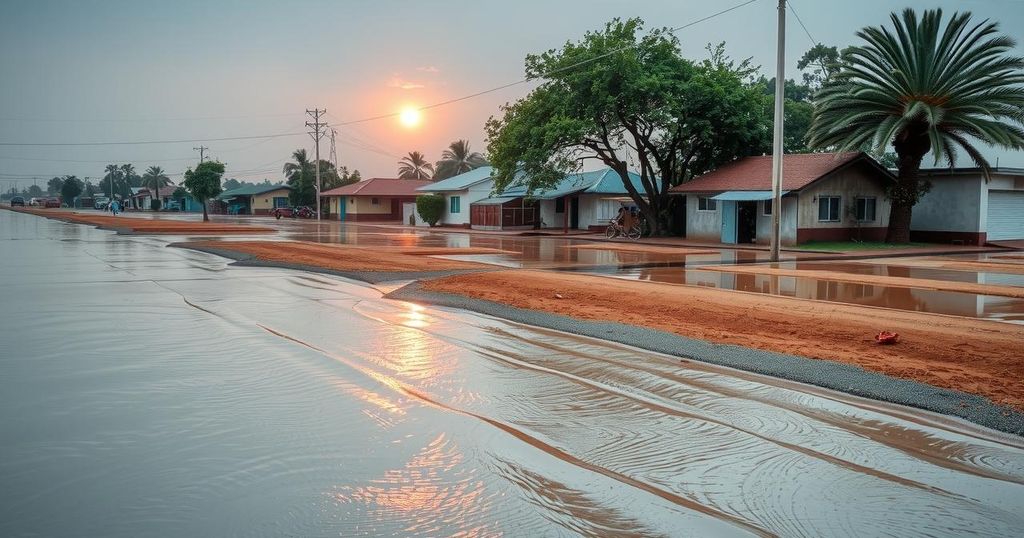Projected Increase in Extreme Flooding Events in the Sahel Due to Climate Change

Research indicates that extreme flooding events in the Sahel are likely to intensify due to climate change, with significant increases in African easterly wave activity predicted by the late 21st century. This study highlights the relationship between wave activity and flooding, pointing to crucial climatic shifts that may affect rainfall and Saharan dust transport across the region.
A recent study highlights that the intensity and frequency of extreme flooding events in the Sahel are expected to rise as global temperatures increase. The research, conducted by scientists investigating African easterly waves (AEWs), reveals that these weather systems, crucial for transporting Saharan dust and influencing rainfall across northern Africa, will experience a notable increase in activity over the Sahel-Sahara region by the end of the 21st century, particularly under scenarios of heightened greenhouse gas emissions.
The findings indicate that this intensification is directly tied to increased baroclinicity due to a strengthening temperature gradient between the Saharan and coastal regions. Enhanced warming at lower altitudes further reinforces the waves, thus producing significant changes in conditions conducive to their formation. The study underscores that escalating AEW activity is likely to lead to more severe and frequent extreme flooding events in the Sahel due to their pivotal role in coordinating mesoscale convective systems (MCSs).
Moreover, the research emphasizes the implications of increased AEW activity regarding Saharan dust transport. A significant spike in wave activity is anticipated over areas known for substantial dust emissions, potentially affecting hurricane formation and broader climatic patterns. The conclusions drawn from this investigation signify the urgent need for enhanced understanding and modeling of AEWs in relation to climate change and its impact on vulnerable regions like the Sahel.
The Sahel region, known for its susceptibility to drought and flooding, is profoundly affected by African easterly waves, which are crucial for modulating rainfall and transporting dust across regions. The rising global temperatures, driven by climate change, pose threats to these weather patterns, potentially exacerbating conditions that lead to flooding. Understanding how AEWs will evolve in response to climate change is vital not only for predicting rainfall patterns but also for preparing for the socio-economic impacts associated with extreme weather events in the region. The presented study builds upon previous research and brings forth new insights into the changing hydroclimatic dynamics due to global warming, offering critical implications for policy and management strategies related to climate adaptations in North Africa.
In conclusion, the study serves as a critical reminder of the complex interactions between climate change and weather systems like the AEWs, with substantial ramifications for the Sahel region. With projected increases in extreme flooding events and alterations in dust transport dynamics, it is imperative for stakeholders to integrate these findings into climate resilience strategies. The urgency of addressing climate change implications within vulnerable regions underscores the need for further research and international collaboration to mitigate adverse impacts on livelihoods in the Sahel.
Original Source: www.downtoearth.org.in







